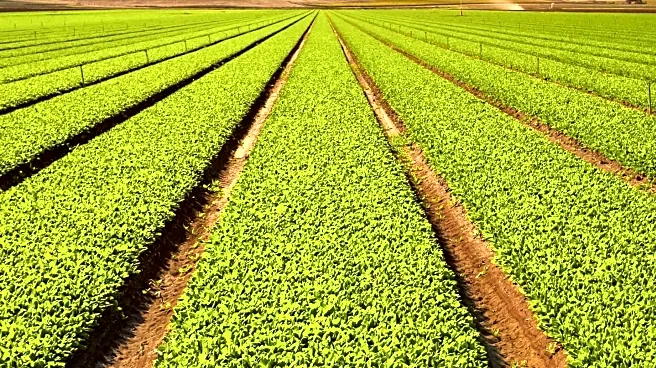What's Happening?
The Food and Agriculture Organization (FAO) of the United Nations is recognizing heritage agriculture systems as vital tools for climate resilience. These systems, developed over centuries, include practices
such as Mexico City's chinampas and China's Aohan Dryland Farming System. They demonstrate how traditional knowledge can conserve biodiversity, sustain land, and support food security. FAO's Globally Important Agricultural Heritage Systems (GIAHS) program acknowledges 102 such systems worldwide, emphasizing their role in climate adaptation. The FAO aims to measure outcomes, raise awareness, and attract investment to support these practices.
Why It's Important?
Heritage agriculture systems offer valuable insights into sustainable farming practices that can address modern climate challenges. By leveraging traditional knowledge, these systems provide a framework for enhancing food security, preserving biodiversity, and supporting livelihoods in diverse environments. The recognition by FAO underscores the importance of integrating historical practices into contemporary climate strategies. As global efforts to combat climate change intensify, heritage agriculture systems present a viable solution for building resilience and ensuring long-term sustainability.
What's Next?
FAO plans to officially recognize 28 new agricultural heritage systems across 14 countries, expanding the global total to 102. The organization is working with member countries to develop frameworks for measuring the impact of these systems on biodiversity, food security, and climate adaptation. The FAO's new Food and Agriculture Museum and Network will further consolidate the link between foods, culture, and tradition, showcasing diverse agricultural practices. Continued investment and support are essential for transforming heritage agriculture into a model for climate resilience.
Beyond the Headlines
The emphasis on heritage agriculture highlights the potential for traditional practices to contribute to modern climate solutions. These systems offer a unique blend of cultural heritage and environmental sustainability, providing lessons that high-tech solutions alone cannot offer. The integration of heritage agriculture into global climate strategies reflects a broader shift towards valuing indigenous knowledge and practices. This approach may inspire new collaborations and innovations in sustainable agriculture, fostering a deeper understanding of the interconnectedness between culture, environment, and food security.








